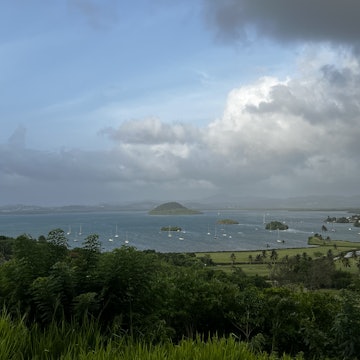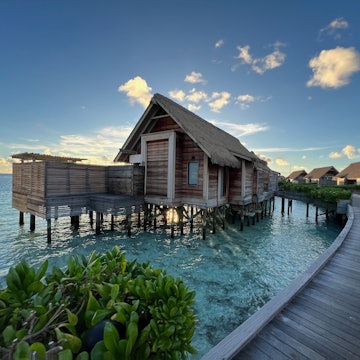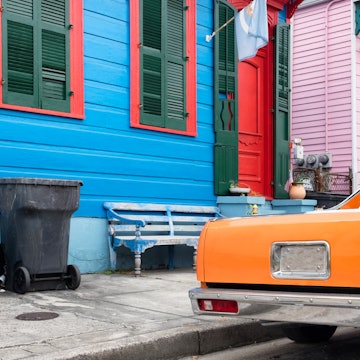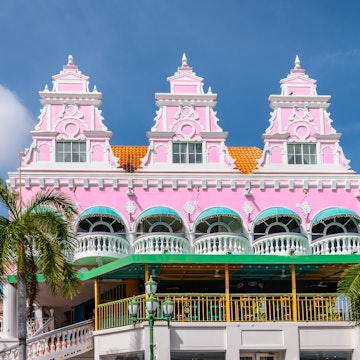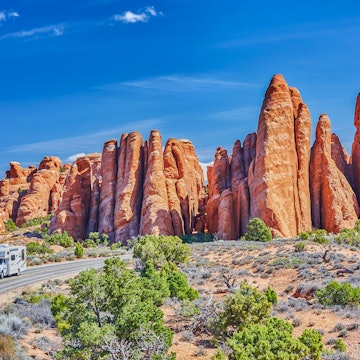

Keep these tips in mind and you'll have a relaxed trip to Brazil. Shutterstock
Just mention that you’re planning a trip to Brazil, and the idea will instantly conjure up images of sunny beaches and the infectious rhythm of a samba beat or the sultry melodies of bossa nova.
From the iconic yellow and blue kit of its national soccer team, the flamboyant outfits of the Carnaval dancers, and the famously fruity headpiece of Carmen Miranda, Brazil’s cultural impression on the world has been wide-reaching.
But as a Brazilian-American it always surprises me how little others know about the vast country’s many diverse regions and day-to-day customs.
I grew up snacking on pão de queijo (cheese bread) and brigadeiros (chocolate truffles), and I’ve been visiting Brazil since I was a kid. Now I return regularly to visit family and explore new regions.
There are endless ways to experience Brazil, but these are the top things to know if you want to plan a trip to Brazil that goes above and beyond.

1. There’s more to the outdoors than beaches and jungles
The energy of Copacabana Beach and the alluring biodiversity of the Amazon Rainforest may have captured the world’s attention, but that’s really the tip of the iceberg when it comes to Brazil’s natural beauty.
Adventurous nature lovers will find Brazil to be a treasure trove with a wealth of geographical diversity.
In the northeastern regions, you can explore the massive dunes and natural swimming pools in the states of Ceará and Maranhão, or venture to the landlocked state of Tocantins where a vast savannah is home to the remarkably unique park of Jalapão.
National parks like Chapada Diamantina and Chapada dos Veadeiros stun visitors with their mountain vistas and waterfalls, not to mention the staggering power of Iguaçu, one of the world’s largest waterfalls made up of over 200 cascades.
2. Brazil really is a cultural melting pot
The US is not the only country to lay claim to being a cultural stew. Brazilian culture melds together the customs and traditions of Indigenous, Afro-Brazilan and its many migrant communities.
In São Paulo, the neighborhood of Liberdade is home to a strong Japanese-Brazilian community; in southern states, you'll notice the visible influence of German immigrants in the region's cross-timbered houses.
Even the street food in Brazil has Lebanese and Italian roots, with kibbeh (fried bulgar wheat and meatballs) and pizza being some of the most popular late-night snacks among locals.
The national dish feijoada, originates from Afro-Brazilian and Indigenous communities who used cassava flour long before the arrival of Europeans in Brazil. This flour is a key ingredient for farofa (toasted cassava flour), the most popular side dish to have with your feijoada.

3. There are major cities to visit beyond Rio and São Paulo
While Rio de Janeiro boasts Brazil’s most iconic skyline and São Paulo is a mega-metropolis that hosts many of the country’s cultural and business institutions, these are hardly the only urban centers in Brazil worth visiting.
Architecture fans should plan a trip to the capital city of Brasilia, where the work of Brazilian architect Oscar Niemeyer takes center stage, while gastronomically inclined travelers should check out Belo Horizonte, the capital of Minas Gerais, a state renowned by Brazilians for its cuisine.
Up north, Salvador is the epicenter of Afro-Brazilian culture, which is the source of the martial art of capoeira and the birthplace of feijoada (a meaty bean stew), Brazil’s national dish.
4. Learning some Portuguese will be a huge asset
Outside of the traditional tourism sectors, you won’t find many Brazilians who speak English, and whatever your level of Spanish may be, it probably won’t get you far either.
In addition to studying basic phrases, you should also prime yourself on pronunciation. For example, an r at the beginning of a word makes an h sound, which means the “rio” in Rio de Janeiro is pronounced more like “hio.”
It may seem like a small detail, but it’s an essential thing to be aware of should you ever need to ask for directions.

5. A kiss on the cheek is a customary greeting
In a social situation, a kiss on the cheek is the routine greeting among Brazilians – even if you’re just meeting someone for the first time.
It doesn’t need to be a full kiss, but cheek-to-cheek contact with a smacking sound is the standard. It’s typically expected between two women or a man and a woman, but men often opt for a handshake to greet fellow men.
If the situation is more formal, like a business meeting or a simple shopping exchange, you can skip the kiss. The number of kisses also vary by region: in São Paulo it’s one, in Rio it’s two, and in Bahia, it can be three or more.
6. Take some simple precautions in urban areas
Crime is a widespread issue throughout Brazil, especially in large cities and the favelas usually located in the city outskirts. Favela tours are available, but the business is controversial: critics believe these tours to be exploitative and unethical.
Brazilians will generally warn tourists against wearing jewelry when out and openly carrying expensive electronics, especially phones.
This has happened to me many times when I’m out taking photos, as many people stop to point to my camera with a concerned “cuidado” (be careful). Keep your wits about you in crowded areas – especially ones with many tourists – and avoid walking alone at night.
7. It’s illegal to drive in Havaianas
Even though Brazil is famous for its Havaianas, Brazilians are serious when it comes to road safety.
Flip-flops can easily get caught on a car's pedals and cause accidents, so if you are caught driving with them, you may get fined. However, it is acceptable to drive barefoot if you don’t have any other footwear on you.








